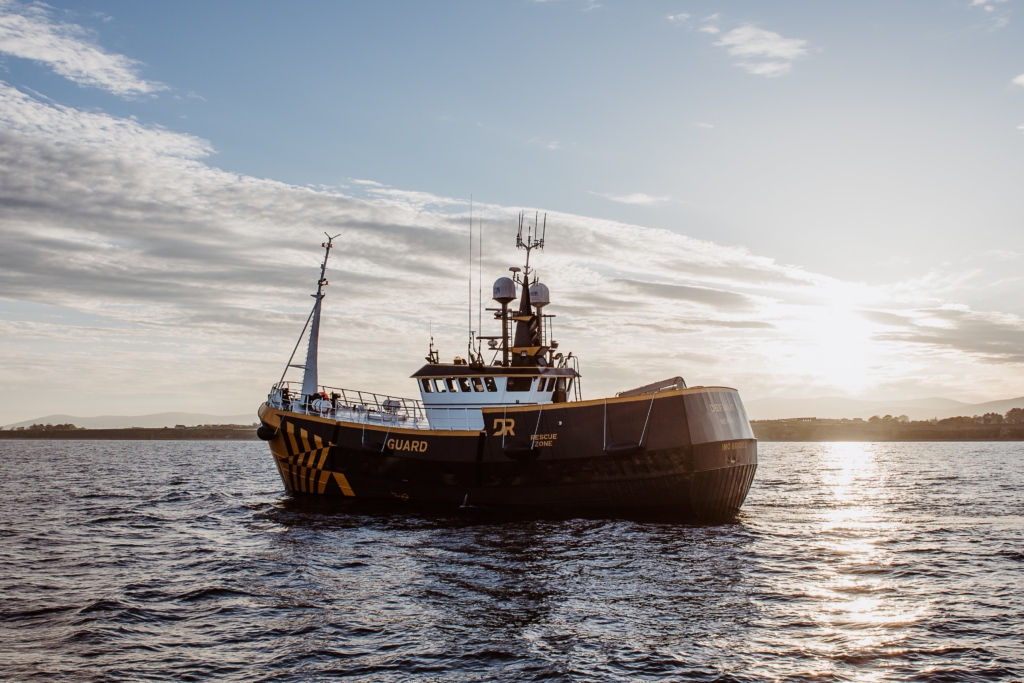Sustainability

Our Commitment
DR Group is proud to introduce new, more sustainable tonnage, reflecting our commitment to reducing environmental impact while maintaining exceptional quality and efficiency.
As the largest owner-operator of guard vessels in the United Kingdom, DR Maritime are keen to pioneer the way for change to work towards a carbon free future in their market sector.
“With a fleet of 19 vessels that consume up to 200,000 litres of diesel fuel oil per month, we are 100% committed to reducing our carbon footprint,”
Russell Shepcar, CEO of DR Group
In association with NIFPO – Northern Ireland Fish Producers Organisation, Seafish and Queen’s University Belfast, The DR Group is on a mission to adapt sustainable practises in Northern Ireland’s Fishing & Aquaculture Industries.
As a key participant in the CASE project, DR Group pledge to contribute and improve the sustainability of their vessels while encouraging the NI businesses within the industry to adopt a more a thoughtful approach in considering environment concerns and take appropriate action.
NEW TONNAGE


VESSEL RETROFIT
TIER III ENGINES


RETRACTABLE THRUSTER UNIT
FUEL GRADES
This is a cheaper alternative compared to retrofits and new vessel builds. This option is also compliant with the majority of engine manufactuers with little modification necessary. Based on a monthly fuel burn of 200,000 litres of MGO, it would reduce C02 emissions by 681 tonnes, even though the cost per litre is increased by over 100%.
